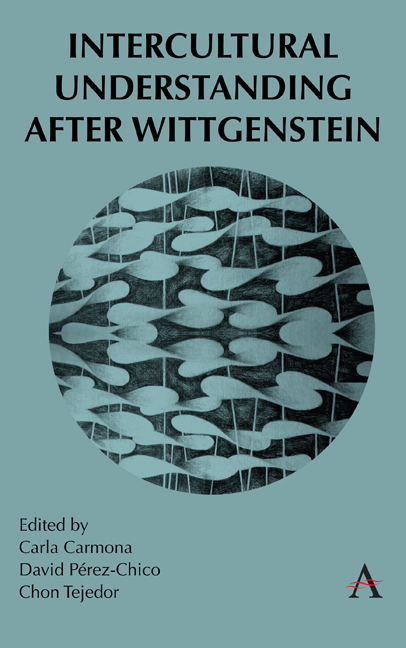Chapter 8 - Interculturality, Ordinary Language and Translation from Wittgenstein to Cavell
Published online by Cambridge University Press: 14 November 2023
Summary
Introduction
In this chapter, I shall introduce the concept of translation according to W.V. Quine and Wittgenstein, then discuss the concept of interculturality implicit in Wittgenstein’s later philosophy, and subsequently, following Wittgenstein, Cavell and Veena Das, defend an ordinary anthropology as a renewed understanding of the intercultural.
In developing my argument, I shall draw not only on my work on these and other authors, and on my research on popular culture, but also on my own life experience as a French philosopher working in the analytic tradi-tion. My earliest research, in the 1980s, investigated the philosophy of Quine, an emblematic American scholar of the twentieth century, who contributed to the hybridization of classical American philosophy and pragmatism with the analytic philosophy of the Vienna Circle; and who proposed a groundbreaking thesis of the indeterminacy of translation, which does not affirm the untranslatability but the indeterminacy between languages, and the multiplicity of the choices that are available to a translator. Despite my analytic training, I have always been resistant to analytic philosophy’s ambition of becoming a global idiom or the universal language of philosophical communication: first, because of the obvious intellectual, conceptual and ethnocentric domination it presupposed; and second, because of the linguistic and cultural richness I had experienced in the differences in languages. From the start, American language and culture – which I had learnt to love during my childhood trips to the United States to see my grandparents – intrigued me, not for their power of universalization, but as a particular language, which we could refer to as ‘ordinary’ language. With Cavell, I discovered a philosophy of this ordinary language, of the ordinary itself, as well as a language that, in translating it, I found to be untranslatable in the strictest sense, with terms that have no equivalent in French: claim; mean; fun; care; matter. It was only natural, then, that, on the French side, I joined Barbara Cassin’s project Dictionary of Untranslatables: A Philosophical Lexicon, which aimed to describe the terms of both ordinary and philosophical English language. One particular aim of this chapter is to illustrate that popular culture – cinema and television series – which is an integral element of global culture, as well as local culture through their connection to an ordinary form of life, have the capacity to create genuine intercultural idioms.
- Type
- Chapter
- Information
- Intercultural Understanding after Wittgenstein , pp. 127 - 144Publisher: Anthem PressPrint publication year: 2023



